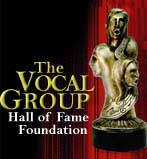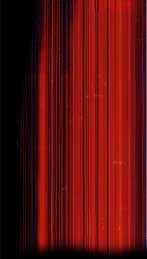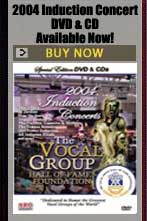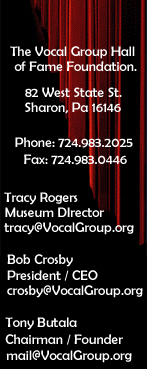| |
Bill to protect musicians, fans from knockoffs heads to House.
By Joe Pinchot
The Herald, Sharon, Pa.
A state House committee has passed to the full House a bill championed by musical groups who are losing their legacy - and a substantial amount of money - to other groups using their names.
The state Senate previously passed the bill, but because it passed just before the Senate recessed late last year, it will have to be approved again.
Sen. Robert D. "Bob" Robbins of Salem Township, R-50th District, a supporter of the Vocal Group Hall of Fame and Museum in Sharon, has been working on the bill for years. "The problem is that many of these groups do not contain any of the original members or a direct lineage to the original group," Robbins told the House Tourism and Recreational Development Committee Tuesday. "They are merely making money off the name of the original acts - not only at the expense of the original artist, but, more importantly, the unsuspecting consumer who believes they are seeing the originals.
This has become a quite profitable industry for knock-off artists." He initially introduced an amendment to the Unfair Trade Practices and Consumer Protection Law that would have prohibited any concert that charges admission without stating on the ticket whether the group contains any original members or is a tribute group.
A hearing was held in Sharon in September 2003 at which Bill Pinkney of the Drifters, Mary Wilson of the Supremes, Carl Gardener of the Coasters and other noted performers testified they had been hurt by groups performing under the names of their groups without authorization.
Ms. Wilson and Gardener said they had spent just about everything they have earned fighting knock-off groups, who seem to be undaunted by court decisions against them. The performers also pointed out deficiencies in the proposal.
Robbins' aide, Nate Silcox, acknowledged that tickets are small and it might be difficult to get all the required information on a stub. In response, officials got a copy of a law from Pinkney's home state of South Carolina.
"Basically, we piggybacked off of that legislation," Silcox said. "It hits the issue on the head better." Robbins, with 12 co-sponsors, introduced a new, stand-alone bill called the Truth in Music Advertising Act that would outlaw advertising of a live musical performance or production "through the use of a false, deceptive, or misleading affiliation, connection or association between a performing group or a recording group."
The exemptions clear up many of the concerns expressed by the performing groups, said Joe Terry of Philadelphia's Danny and the Juniors. "I love the bill exactly as it is," said Terry, who has been working on getting legislation in Pennsylvania passed since 1996.
Exemptions are proposed for situations when:
ä The group holds the federal trademark on the name. This protects the Four Aces. Although no original members are in the group, the current performing group, which sang at Buhl Day a few years ago, owns the name. Terry said this is an element missing from the laws in South Dakota and North Dakota, and is an important part of the Pennsylvania bill. It should head off costly litigation to determine who has the trademark rights, Terry said.
At least one member of the group is an original member who appeared on a recording and has not abandoned the group's name or affiliation. This protects the Four Lads. Original members Bernie Toorish and Frankie Busseri have formed different groups using the name.
The group is advertised or promoted as a tribute group or
as performing a salute to the original group.
The performance is taking place outside Pennsylvania.
The performance is authorized by the recording group.
This satisfies the case of the Four Freshmen. Original member Bob Flanigan owns the name and hires the
members of and manages a quartet called the Four Freshmen.
The bill would give the state Attorney General and county district attorneys the right to seek a court injunction when they believe a concert or performance will violate the act. When an injunction is granted, the court can assess costs against the defendant and order that restitution be paid.
Anyone who violates the law, should it pass, could be fined a civil penalty of $5,000 to $15,000. Silcox, who has been working with former Sha Na Na bass singer Jon "Bowzer" Baumann, who heads the vocal hall's
Truth in Music Committee, Terry and Frank Maffei, also of the Juniors, said the House comes back in session Jan. 23, and the bill probably will go to the House Appropriations Committee for a review of its financial
impact.
The Senate Appropriations Committee determined that enacting the bill into law will have little impact on the
Attorney General's office. The AG's Bureau of Consumer Protection's current staff could handle the few complaints that are expected.
"We'll certainly be in talks with some of their folks over there (House) to make sure they get to this in a timely fashion," Silcox said.
Terry said he believes the bill will pass the House and make it to the desk of Gov. Ed Rendell. He met Rendell at a Senate hearing two years ago and believes the governor would sign the bill.
"He is very, very for this," Terry said. "He's a big music fan as well as a big sports fan."
|











